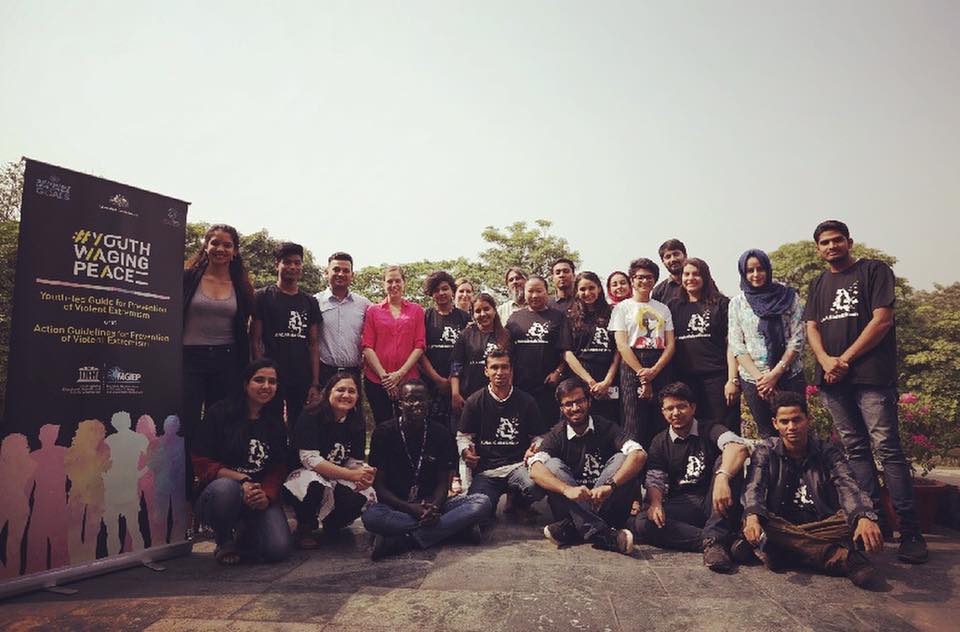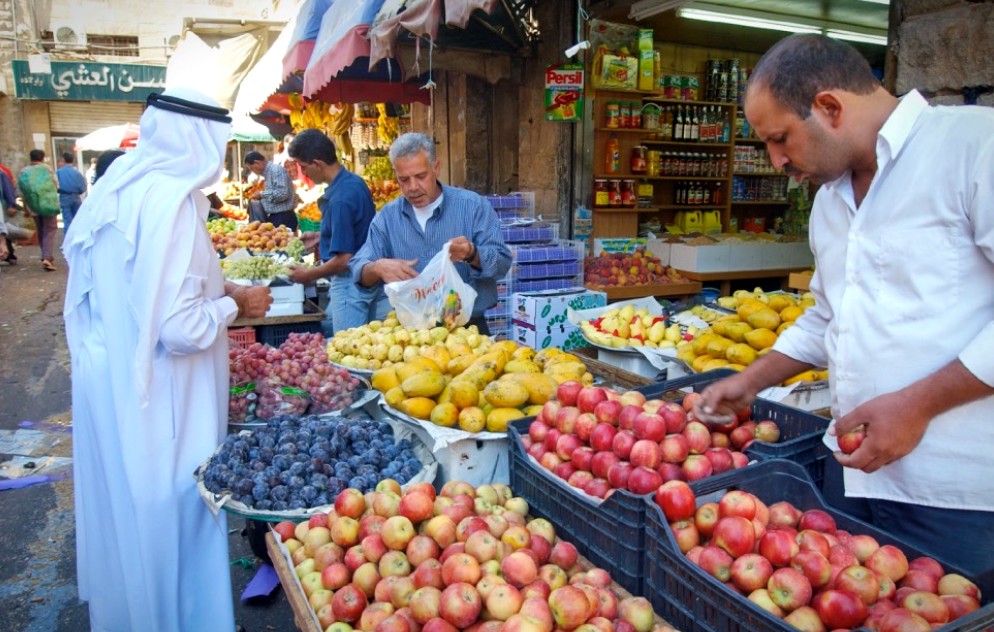Workshops
Call for Applications #YouthWagingPeace South Asian Workshop-I

Under the aegis of the Second Phase of #YouthWagingPeace – The Whole of Community Approach to PVE, UNESCO MGIEP, UNAOC and the Sri Lanka National Commission for UNESCO are inviting youth leaders from Afghanistan, Bangladesh, India, Myanmar, Pakistan and Sri Lanka; who are working on the ground to Prevent Violent Extremism through Education for an opportunity to improve their Social and Emotional Skills (including critical thinking skills), Media and information literacy skills and handson project management to curate and implement community wide activities to build bridges of peace and prevent violent extremism in their communities.
When? (tentatively) 10 -15 of February 2020
Where? (tentative) Colombo, Sri Lanka
The following information should help in providing applicants with an overview of the engagement. Please read careful before you apply.
A. Tentative Timelines
- 25th December 2019: Shortlisting of final 30 youth leaders and reaching out
- 31st December 2019: Confirmation, Visa letters and flights booking
- 1 – 30 January 2020: Online engagement
- 10 -15 February 2020: Intensive Face to Face Workshop
B. Selection criteria
- Must be 21-35 years’ old
- Must be from Afghanistan, Bangladesh, India, Myanmar, Pakistan and Sri Lanka
- Must be a Youth Leader (running your own youth-led organization that is legally registered or leading a project/initiative on Violent Extremism within a youth-led organization or your own independent project or initiative that is 2 years old)
- The organization or initiative represented must be working in the intersection of the Prevention of Violent Extremism and Education a. Area of expertise: education, conflict, youth engagement and policy, Inter-cultural and interreligious dialogue, gender-based violence, prevention of violent extremism, etc. Specifically, the prevention of violent extremism through education. b. The selection criteria is flexible to accommodate other exceptional young leaders with a proven record of accomplishment (including youth working on religious tolerance, arts for peace, young school administrators, young educators and trainers, etc.)
- Active: must be actively/currently involved in the ‘area of profession/expertise listed in point no. 3 for at least 2 years, especially, the training or other on-ground engagements with the community or ultimate beneficiary.
- Community mobilisation: prior experience of engaging networks of youth and communities in peacebuilding/PVE initiatives. Should have an active network of at least 1000 youth or community stakeholders.
- Good research and writing skills (the youth leader must be able to led a chapter on State of Violent Extremism in his or her context)
- Good communication and facilitation skills (will have to go and train others!)
- Resource mobilisation and fundraising skills 10. Outreach to disseminate the results of the conference and act as multipliers
C. Pre-workshop Online engagement
- 1-30 January 2020 1. Joining the Tribe: Joining of GYAK and the #KindnessMatters Campaign
- (Youth-led) Mapping of Violent Extremism
- Online training:
- Introduction to Critical Inquiry and the PVE (Rethinking Youth).
- Introduction to SEL (Rethinking learning and Rethinking youth/Shankar)
- Introduction to Media and Project Management Skills (Rethinking Youth and UNAOC)
D. Tentative 2 Plan of the Face-to-Face Workshop
| Day 1 | Official Opening Pre-assessment Ice-breaking (Getting to know each other) PVE: A Critical Conceptual Unpacking (Violence and Violent Extremism in my backyard – Community Mapping) Social and Emotional Learning (Introduction – Mindfulness) |
| Day 2 | Drivers of Violent Extremism Social and Emotional Learning (Empathy) |
| Day 3 | Media and Violent Extremism Stocktaking of current PVE Efforts Action: A New Way of Preventing Violent Extremism (Introduction to the Whole of Community Approach – youth leaders begin to ideate their follow-on activities) Social and Emotional Learning (Compassion) |
| Day 4 | Action: A New Way of Preventing Violent Extremism (continues – youth leaders work intensively on their activities) The Shark Tank I (Pitching Follow on Projects by youth leaders) Substantive feedback |
| Day 5 | The Shark Tank II (Pitching and finalisation of the revised projects) Post Assessment GYAK and #KindnessMatters (a way of staying in touch) Official Closing Cultural night |
E. Follow-on activities
- Development of the youth-led report: State of PVE in South Asia (to be published max 3 months after the workshop)
- Every youth to implement at least 2 activities reaching out to a minimum of 25 beneficiaries per activity per year (in 2020 – at least 30 activities reaching out to minimum 750 direct beneficiaries)
- Periodic monitoring and capacity building online when ready on UNESCO MGIEP FramerSpace environment
- Follow on Workshop – August 2020 during WYCK tentatively

Blog
Sustainable Development Workshop by the Hollings Center for International Dialogue

The issues raised by the Youth, Social Entrepreneurship and Sustainable Development project have taken on even greater significance with the spread of the Covid-19 pandemic. Economies around the world are contracting and youth, who were already experiencing financial difficulties prior to the pandemic, face even more uncertain employment and career prospects for the foreseeable future. The question this project posed remains highly relevant: what role can social entrepreneurship play in addressing the material, social and individual emotional needs of youth, especially in non-Western countries?
Due to the current health crisis, the project’s workshop at the Hollings Center, originally scheduled for May 2020, had to be cancelled. In its place, the YSESD proposes to hold a three part online workshop during the fall of 2020. The workshop will be divided into: 1) a project competition in social entrepreneurship; 2) youth social entrepreneurial projects; and 3) workshop assessment. The YSESD will engage in post-workshop dissemination of its results.
The project proposes to invite 40 youth social entrepreneurs from the Middle East and North Africa (MENA) region and Pakistan as well as students from the Honors College, Rutgers University who will serve as Rapporteurs.
The target countries include Iraq, Turkey, Pakistan, Egypt and the United Arab Emirates.
In addition to YSESD Director and PI, Dr. Eric Davis, Rutgers University, and the workshop co-organizers, Dr. Yass Alkafaji, Director Iraq Public Leadership Program, the American University of Sharjah; Dr. Nirav Patel, Director of the Forum, the Honors College, Rutgers University; Dr. Peter Valenti, Liaison to Social Entrepreneurship Studies, New York University and New York University-Abu Dhabi; Dr. Abid Ali, Data Science Program Faculty, Northwestern University; Mr. Berat Kjamilli, migport.com – Refugee Knowledge Sharing Platform, Istanbul; and Mr. Yousuf Abdelfatah, RAND
Corporation, Arlington, VA.
The co-organizers will assist in recruiting youth social entrepreneurs from the workshop’s regions of focus: Iraq, Turkey, Pakistan and Egypt.
Project Competition Module:
The first component of the workshop will offer a Project Competition Module in mid-November 2020. As part of the Module, Dr. Davis and the Workshop co-organizers will ask the 40 participants to address critical issues facing developing countries by engaging in a competition to come up with solutions to critical questions posed by the offer presentations on YSESD project themes.
The competition will ask 8 participant teams of 5 members each – comprised of males and females and members of different national origins – to develop social entrepreneurial ventures which will address several key content areas:
1). Energy and Electricity Delivery (how can electricity be delivered in a more effective manner through social entrepreneurial ventures, how can such ventures improve the development of solar energy projects for residential and commercial usage);
2). Civic Engagement (how can social entrepreneurship help develop secondary and university level curricula which promotes a better understanding of citizenship responsibilities and rights, democracy promotion, and cultural and religious tolerance); public institutional capacity (strengthening the rule of law, human rights and fighting corruption and nepotism);
3). Gender Empowerment (changing societal attitudes towards women’s participation in the public sphere, improving the women’s ability to translate higher education degrees into career opportunities, and promoting child-care centers which allow women to pursue their careers);
4). Public Health (how can survey research improve knowledge of the public health needs of Iraq’s poor urban neighborhoods and villages, how can knowledge of vaccinations and other critical medical procedures be better disseminated, how can the expansion of health care clinics be linked to social entrepreneurship);
5). Environmental Sustainability (how can recycling be expanded to deal with better disposal or refuse and offer funds to poor communities, how can residents in poorer communities be helped to better access to clean water and improve local health conditions, how can social entrepreneurial ventures build on traditional methods of environmental sustainability to promote greater consciousness of the need to protect local environments).
In “breakout rooms,” each team will be given 30 minutes to develop their project ideas. Then, Workshop will discuss and evaluate the content of the proposals as to their originality and possibility of implementation. This project competition will not only engage the Workshop participants but enable the teams to decide on which of the 5 content areas they would like to concentrate in the second session of the Workshop in early December.
(Proposed dates of Workshop Session 1: November 12-13)
Youth Social Entrepreneurial Projects:
The Workshop’s Project Competition presentations will offer both substantive information in the form of conceptualizing youth social entrepreneurship and its role in promoting sustainable development, but also allow the Workshop organizers to assign themes for social entrepreneurial projects which the Workshop participant teams will develop between mid-November and the first week of December 2020. Working in teams of 5 participants, with an emphasis on gender balance and including youth from different countries, the projects will develop and then offer a short PPT presentation.
Each project developed by Participant Teams will be asked to incorporate an explanation of the project’s significance, what sectors of a country’s population would benefit from the project, and what financial resources are required to make the project a reality. Teams will also be asked to specify which local and international governmental agencies (IGOs), and international NGOs and foundations, would be appropriate targets for requests for funding.
(Proposed dates of Workshop Session 2: December 3-4).
Assessment:
The project organizers and participants will hold a final meeting to assess the Workshop’s outcome. An Assessment Rubric will be distributed on December 4 and participants in each of the teams will be asked to use the Rubric, or suggest adding a component which they feel is lacking, and then write a short report which will be circulated before the assessment meeting.
The Assessment Reports will be distributed prior to the final meeting and then be discussed by the workshop participants during the meeting. Workshop participants – organizers and students – will also discuss the manner in which the results of the workshop should be disseminated. The main ideas would to record the workshop sessions and then offer them for distribution after the workshop to appropriate organizations which support youth social entrepreneurship.
(Proposed date of Workshop Session 3: December 14)
Youth, Social Entrepreneurship and Sustainable Development Workshop
Sponsored by the Hollings Center for International Dialogue
Istanbul, Turkey
Proposed Workshop Addendum
Eric Davis
Department of Political Science
Rutgers University
davis@polisci.rutgers.edu







